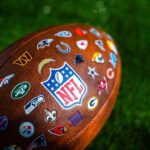US bettors spend more than global average despite fewer active players

US bettors spend more than the global average, despite being less active compared to the rest of the world, according to data from Optimove’s latest iGaming Pulse report.
The report tracked 3.2 million players in the US and 21 million globally in September.
US players, on average, deposited US$404 on online gambling platforms in September, nearly double the average of US$280 for the rest of the world. That figure was down from the previous month when US bettors deposited an average of US$552, compared to US$290 elsewhere in the world.
Monthly casino betting was also nearly three times higher for the US compared to the global average, with US players wagering US$6,425, whereas the rest of the world wagered US$2,202 in the same period.
Monthly sports betting data revealed the same trends, with peaks in the US recorded for sporting competitions such as the NFL and March Madness.
In September, the figure was significantly lower, declining from US$814 to US$695 year-on-year. This was still higher compared to the rest of the world, which averaged US$506 in September.
In addition to higher placed bets, US customer retention also rose last month, hitting 76%, its highest level in a year, marking a sharp recovery from the summer slump, when US retention was 62% in July.
Despite the positive momentum, the figures also show there is still instability in US player engagement. The average retention rate of 66% trails behind the global average, indicating that sustaining player loyalty is more challenging in the US market.
The average number of active days was also lower compared to the rest of the world, with US players averaging 6.6 days in September, whereas the global number was 7.8 days.
The report comes after Optimove partnered with crypto casino BetHog in August, with the casino becoming part of Optimove’s Ignite+ program.
Abi Bray brings strong researching skills to the forefront of all of her writing, whether it’s the newest slots, industry trends or the ever changing legislation across the U.S, Asia and Australia, she maintains a keen eye for detail and a passion for reporting.
Verticals:
Sectors:
Topics:
Dig Deeper
The Backstory
Why U.S. betting metrics look outsized — and uneven
U.S. bettors are wagering and depositing far more than their global peers, yet they are active fewer days and prove harder to retain. That tension has surfaced repeatedly in market data this year and is central to understanding where operators are pushing — and where risks are accumulating — as the fall sports calendar drives volumes.
Optimove’s recurring snapshots of player behavior show the pattern building across months, not just a single cycle. In May, the firm reported that the average U.S. deposit rose 10% year over year to $604, versus a 2% global increase, with U.S. casino spend exceeding six times the global average. It also flagged a persistent engagement gap: U.S. bettors were active fewer days and retained at lower rates than worldwide peers. Those dynamics, detailed in Optimove’s U.S. Gaming Pulse for May 2025, help frame the latest readout showing Americans still outspend but log fewer active days and exhibit more volatile loyalty.
The result is a market that can deliver spikes in revenue on marquee sports and promotional pushes but requires more effort to keep customers coming back. Operators say they are shifting tactics to prioritize higher-value users and reduce inefficient marketing. Investors are watching how that recalibration plays out as profitability timelines stretch and tax regimes change in key states.
Seasonality and the NFL effect
Seasonal sports cycles explain many of the swings in betting volume. The NFL remains the prime driver of weekly engagement, and attitudes toward wagering on pro football appear stable heading into the new season. In a recent deep dive, Optimove found that 77% of surveyed bettors plan to wager throughout the NFL season, with regular season games leading interest. Eighty-three percent expect to bet on the Super Bowl regardless of the matchup, and 82% say they will continue even if their favorite team exits the playoff picture.
The same study points to a shift back toward pregame bets and away from live wagering, with point spreads, moneylines and totals driving the bulk of action. That tilt matters for hold rates and promotional design. Bettors say app usability and timely, relevant messaging influence retention, while irrelevant outreach pushes them to switch. In a market where 80% of users rely on two or more sportsbooks weekly, small frictions can cause meaningful churn.
The upshot for operators is that NFL months deliver reliable, broad interest, but sustaining behavior into shoulder periods requires more precision. The pattern echoes Optimove’s broader data: U.S. customers generate larger ticket sizes yet still under-index in active days and retention compared with global averages. Promotions and product experience, particularly on mobile, remain decisive.
Operator strategy: fewer freebies, more “premium mass”
The spending and engagement split is pushing operators to rework playbooks. BetMGM has been explicit that it is leaning into efficiency and higher-value players after a year of heavier losses. On a February investor call, executives laid out a plan to invest less in late-entry or lower-penetration states, cross-sell more aggressively between casino and sports, and grow live-dealer content. The company touted improved key performance indicators and guided to stronger top-line results in 2025 while reorienting marketing spend toward what it calls “premium mass.” Those priorities are detailed in BetMGM’s remarks to investors, which also highlighted a broader push to link online play with MGM Resorts’ loyalty ecosystem.
That strategy aligns with the data: if U.S. customers spend more per capita but engage fewer days, the path to better unit economics likely runs through capturing and retaining the highest-intent cohort with product depth, loyalty tie-ins and targeted offers, rather than blanketing low-yield segments with bonuses. It also reflects a more sober view of regulatory risk. Executives warned that steep tax hikes, like Ohio’s push to increase the sports betting tax rate, can undercut the competitive advantage of regulated books against offshore operators. They argue that expanded, stable iGaming legislation would be a better revenue lever for states than ratcheting sports betting taxes.
Social pressure points are rising with the handle
As money and attention concentrate around big events and higher-stakes bettors, the social costs are also coming into sharper focus. The top golfer in the world, Scottie Scheffler, recently shut down his Venmo account after repeated harassment tied to betting outcomes. He described a barrage of abusive messages and solicitation requests once his username circulated. The episode, reported in coverage of Scheffler’s decision to close his Venmo, fits a broader pattern of athletes facing online and in-person abuse linked to gambling losses.
Leagues and sportsbooks have begun to respond. The NCAA said online betting-related abuse around March Madness declined 23% year over year following new measures. Major books have banned users for harassing players. Still, the Scheffler case underlines the reputational and regulatory risks if abusive behavior scales with betting activity. For operators seeking to cultivate higher-value customers and steady engagement, the line between passionate participation and toxic pressure is a business issue as much as a moral one. The public response to high-profile incidents can shape the policy climate that determines tax rates, market access and advertising latitude.
Responsible gambling tools race to keep pace
Tools that help customers set limits or block access are expanding alongside the market. UK-based BetBlocker says it surpassed 20,000 active users in Brazil this year after the country’s regulated market opened and major operators launched. The nonprofit, which expanded into the U.S. with multilingual support, allows continuous or scheduled blocking across devices and both regulated and unregulated sites. The milestone, outlined in BetBlocker’s update on Brazil growth, highlights two threads relevant to the U.S.: responsible gambling infrastructure is becoming a standard expectation, and clearer rules help consumers distinguish legal operators from illegal sites.
Optimove’s NFL survey found that most bettors report budgeting and are aware of responsible gambling resources, yet nearly two in three admitted spending more than intended. Operators say they see an opportunity to build trust by more visibly integrating budgeting tools, cooldowns and personalized guardrails into the core product. For a market where retention lags, meaningful, user-controlled safeguards may do more to keep customers than blanket bonuses or generic alerts.
The stakes: growth with discipline
The latest U.S. benchmarks — heavier deposits, bigger casino tickets, lower active days and uneven retention — are not contradictions so much as signals. The market is scaling, but it is doing so with sharper peaks and deeper troughs than mature jurisdictions. NFL seasonality magnifies the effect. The logical response is precision: better segmentation, stronger loyalty integrations, disciplined promotion, and visible, useful responsible gambling tools.
Investors will look for evidence that the strategic pivot pays off in steadier net revenue and narrower promo spend, particularly as tax headwinds rise and as policy makers weigh iGaming expansion. Regulators will watch whether harassment and problem gambling indicators worsen with the money flowing into peak events. And consumers will keep voting with their thumbs, shifting across multiple apps unless operators make staying put the easiest, safest and most rewarding choice.
The backstory is clear: U.S. bettors are writing bigger checks than their peers around the world. Keeping them engaged, protected and onshore — through the NFL season and after — is the industry’s real test.








